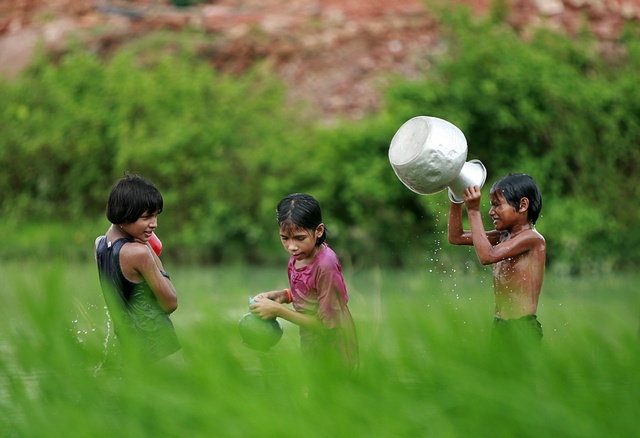International agency UNICEF finds itself again on the receiving end of criticism from various sides following a Burmese media report that it had apologised for using the word “Rohingya” and promised Arakanese authorities that it would not use the term again.
The humiliating kowtow comes just two weeks after exile media group The Irrawaddy lambasted the UN organisation for renting office space in Rangoon from a former military officer for the sum of US$87,000 per month.
Officially known as the United Nations Children’s Fund, UNICEF has been active in Burma since 1950. According to its website, UNICEF helped to successfully initiate programs in Burma to protect children against smallpox, leprosy and yaws, before expanding its programs to include rural health services, basic education for children, and community water supply and sanitation systems. More recently, UNICEF has supported HIV/AIDS prevention, early childhood development, and child protection programs, it says. The agency also supports immunisation and malaria prevention programmes in high risk areas.
One high-risk region in Burma is Arakan State in western Burma, the most impoverished region in the country next to remote Chin State. In recent years, conditions have deteriorated due to ongoing communal violence between the Muslim Rohingya community and Arakanese Buddhist nationalists, which has left more than 200 dead and 140,000 displaced from their homes.
Despite the ever-increasing need for humanitarian aid in Arakan State, several international NGOs, including UNICEF and Médecins Sans Frontières (MSF), were accused earlier this year by local Buddhist politicians and civic groups of bias in their deliveries in favour of the Rohingyas, commonly referred to as “Bengalis” by local Buddhists due to their presumed roots in Bangladesh.
[related]
Tensions peaked in March when an otherwise innocuous incident involving an aid worker from NGO Malteser International set off a chain of violence which cumulated in attacks on the offices of several agencies, including UNICEF. Foreign staff were quickly evacuated from the Arakan capital, and negotiations to return the INGOs to the region to continue humanitarian work have been protracted and met with resistance from Arakanese Buddhist representatives.
MSF and Malteser International were refused permission to return to Arakan, while UNICEF and other UN agencies saw their activities curbed.
On 2 May, Bertrand Bainvel, UNICEF’s top official in Burma, made an effort to clear up perceptions of biased aid delivery.
“UNICEF [follows] the same principles as the United Nations, which are principles of neutrality, impartiality, and dignity. We are providing our support based on needs, not based on ethnicity [or] religion,” he said.
“Needs are not the same across all communities. Needs are different. If you’ve been part of a family who’s been displaced, who’s living in a camp, of course your environment is much more fragile, and you become much more vulnerable.”
Despite or perhaps because of its uncompromising approach to aid work, it appears that UNICEF has now been forced into offering apologies and promises to Sittwe authorities.
During a 4 June power point presentation in the Arakan capital, a UNICEF staffer used the common term “Rohingya”, sparking outrage from local administrators.
According to a 6 June report in Eleven Media, Than Tun, a member of the Emergency Coordination Centre — a body that oversees delivery of aid in the state — described the use of the word “Rohingya” as a “breach of diplomacy” and as a “violation of Myanmar’s sovereignty”. The report even alleged that the terminology could reignite violence in the region.
According to the report, UNICEF’s Bainvel was later compelled to personally apologise for the verbal faux pas, and promise that his agency would not use the term again.
The organisation’s concession to state terminology was immediately condemned by commenters on social media with many international observers calling the move a “humiliation”.
UNICEF has not responded to DVB’s calls for a response to date.
The incident is compounded by a report on 22 May in The Irrawaddy which slammed the agency for leasing a property for $87,000 per month in Rangoon’s Bahan Township from former Gen. Nyunt Tin, who served as minister of agriculture under the former ruling junta.
UNICEF responded to the report with a statement on Thursday saying, “Standard due diligence on the owner and her family concluded that none of the international sanctions in place until recently had been levied against the landlady or her immediate family and no criminal charges were extant.
“Although allegations against a member of her family who was once a member of the previous military regime surfaced, the official had since left public office and was not subject to any criminal charges or international sanctions,” the statement said. “Consequently, the best interests of the children we exist to help would not be damaged through this commercial engagement.”



